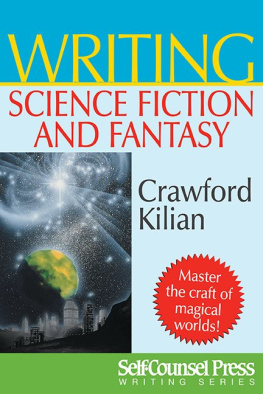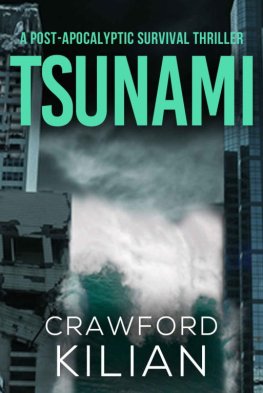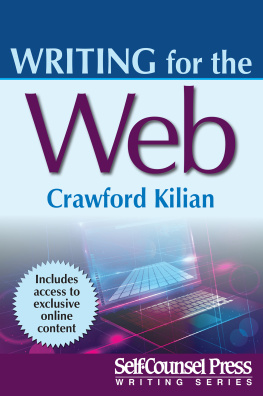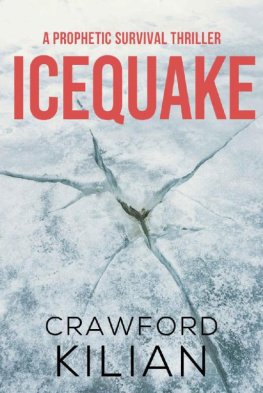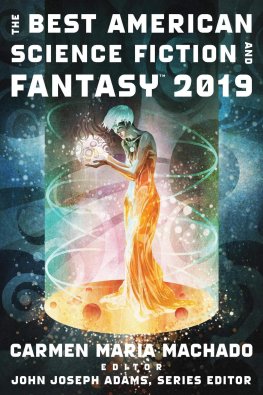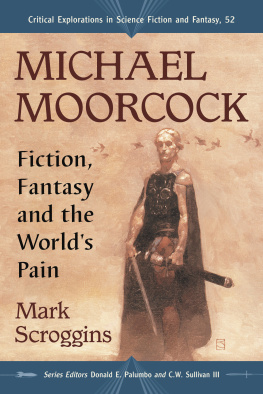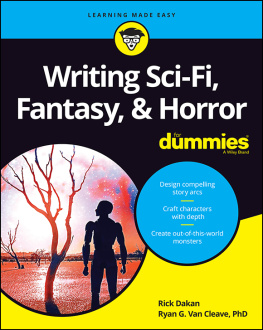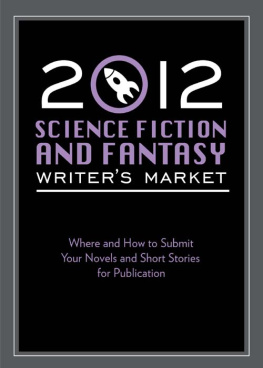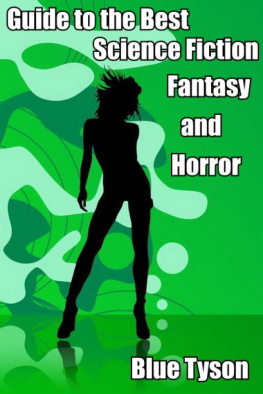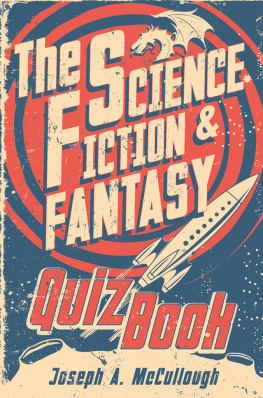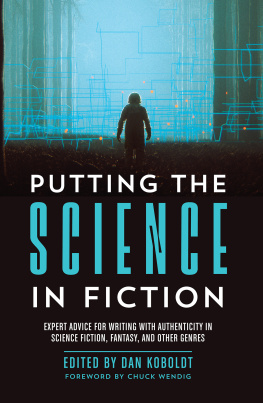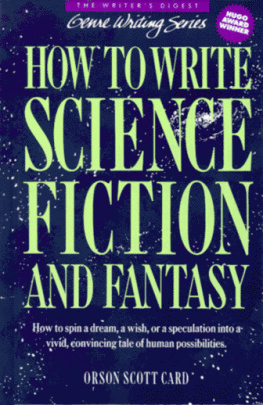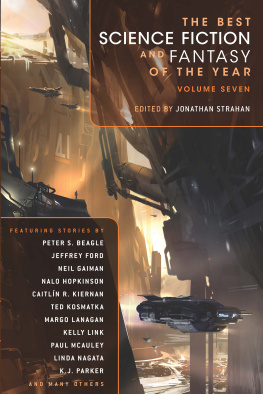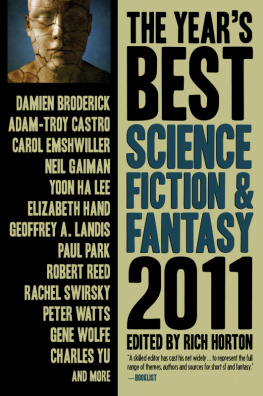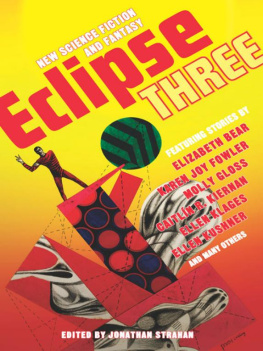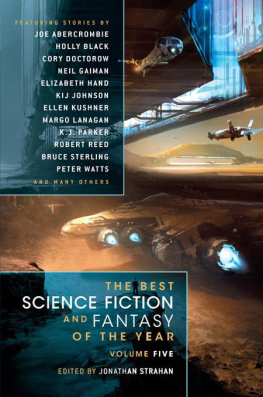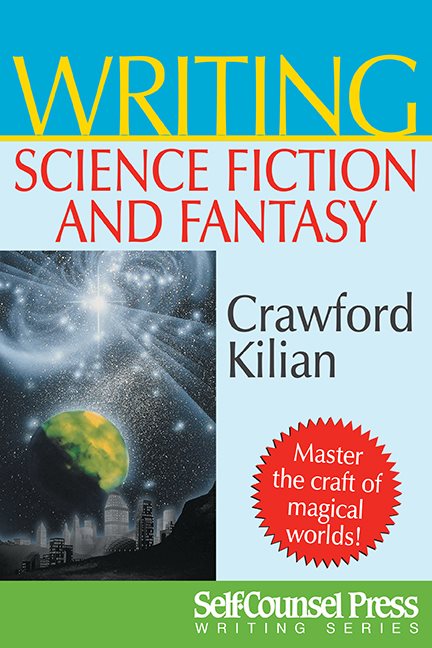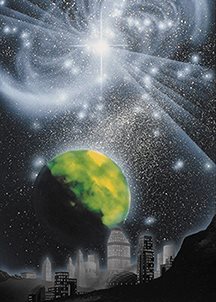Crawford Kilian - Writing Science Fiction & Fantasy
Here you can read online Crawford Kilian - Writing Science Fiction & Fantasy full text of the book (entire story) in english for free. Download pdf and epub, get meaning, cover and reviews about this ebook. year: 2013, publisher: Self-Counsel Press, genre: Art. Description of the work, (preface) as well as reviews are available. Best literature library LitArk.com created for fans of good reading and offers a wide selection of genres:
Romance novel
Science fiction
Adventure
Detective
Science
History
Home and family
Prose
Art
Politics
Computer
Non-fiction
Religion
Business
Children
Humor
Choose a favorite category and find really read worthwhile books. Enjoy immersion in the world of imagination, feel the emotions of the characters or learn something new for yourself, make an fascinating discovery.
- Book:Writing Science Fiction & Fantasy
- Author:
- Publisher:Self-Counsel Press
- Genre:
- Year:2013
- Rating:5 / 5
- Favourites:Add to favourites
- Your mark:
Writing Science Fiction & Fantasy: summary, description and annotation
We offer to read an annotation, description, summary or preface (depends on what the author of the book "Writing Science Fiction & Fantasy" wrote himself). If you haven't found the necessary information about the book — write in the comments, we will try to find it.
Challenge your readers imaginations
Practical techniques you can apply today
Written by a successful author of SF and fantasy novels
Master the craft of magical worlds
Are you struggling to get started on your science fiction or fantasy novel? Stuck at chapter two or need a fresh approach? Find new direction and inspiration with this unique guide to creating original and convincing stories. Written by a successful author of more than ten science fiction and fantasy novels, Writing Science and Fantasy takes an in-depth look at these two best-selling genres. Kilian delves into the origins and conventions of science fiction and fantasy and goes over the many subgenres, including nanotechnology, space opera, and sword and sorcery. He forces you to ask yourself crucial questions about your own novel, and also offers practical advice on how to prepare and market your manuscript to publishers, editors, and agents. With this book as a guide, both novice and experienced writers can learn how to make their work both a literary and financial success. Learn about:
Constructing a scene
Showing versus telling
Avoiding clichs
Developing good writing and research habits
Creating plausible fantasy worlds
Using symbolism and imagery effectively
Crawford Kilian: author's other books
Who wrote Writing Science Fiction & Fantasy? Find out the surname, the name of the author of the book and a list of all author's works by series.

